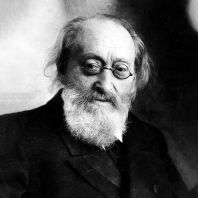麦克斯·布鲁赫
作曲
Max Bruch saw himself as an unwavering guardian of tradition, and reacted to every musical innovation with the sharpest of criticism. Throughout his life, he was in complete harmony with the Classical-Romantic tradition and dismissed the developments of the New German School led by Franz Liszt just as vehemently as he did the music of Richard Wagner and Claude Debussy.
Born in Cologne in 1838, Max Bruch received his first music lessons from his mother and was a musical prodigy. He had already composed numerous works by the age of twelve, one of which – a string quartet – won the Frankfurter Mozartstiftung prize in 1852. Thanks to the scholarship associated with this, Bruch studied until 1857 under Ferdinand Hiller, who had just been appointed municipal music director and head of the newly founded conservatory in Cologne. Further studies took him to Leipzig, where he made contact with the Mendelssohn circle, before moving to Mannheim at the suggestion of the court kapellmeister Vincenz Lachner. It was there that he composed his opera Die Loreley, among other works. Bruch’s first permanent position was as music director in Koblenz from 1865 to 1867 – the period in which he also wrote his famous First Violin Concerto. He was later to curse its popularity, which surpassed that of all his other works. After working as court kapellmeister in Sondershausen, as a freelance composer in Berlin and Bonn, and as director of the Philharmonic Society in Liverpool, Bruch took over the direction of the Breslauer Orchesterverein in 1883. Here, the composer devoted himself intensively to questions of copyright in order to prevent the “piracy” (as Bruch put it in a letter in 1888) of American music institutions. In 1891, Bruch finally returned to Berlin, where he took over a masterclass in composition at the Akademie der Künste. In 1907, the composer, who had received numerous honours and prizes, was elected vice-president as the successor to Joseph Joachim. His students included the later world-famous operetta composers Oscar Strauss and Eduard Künneke.